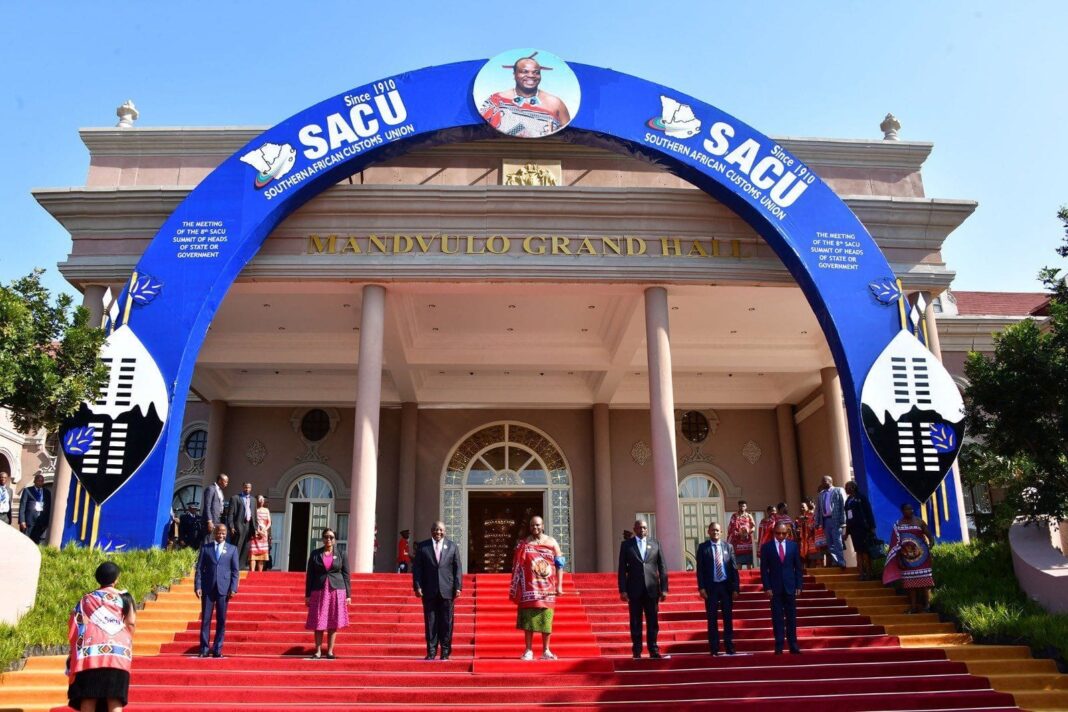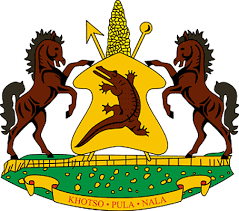Bereng Mpaki
The ratification of the African Continental Free Trade Area (AfCFTA) agreement by all SACU member states, has been welcomed by the SACU heads of state, as move that brings closer to reality, the region’s participation in a single African continental market.
SACU members have also finalised the list of products whose tariffs will be reduced by 90 percent during trading with extra SACU members over the next ten-year period.
Founded in 1910, the Southern African Customs Union (SACU) is a southern African regional economic organisation, and is the world’s oldest customs union.
AfCFTA on the other hand, entered into force on May 30, 2019 with trade among African countries officially commencing in January 1, 2021.
By March 2023, about 100 products out of 4,500 products with liberated tariffs, were being traded between few countries under the AfCFTA.
The world’s largest free trade area bringing together the 55 African countries and eight Regional Economic Communities (RECs), AfCFTA aims to create a single continental market with a population of about 1.3 billion people and a combined gross domestic product (GDP) of approximately US$ 3.4 trillion, through elimination of 90 percent trade barriers.
“The summit noted with appreciation that all SACU member states have ratified the agreement establishing the (AfCFTA),†SACU said after the recent SACU summit held in Eswatini.
“The SACU Provisional Schedule of Tariff Concession (PSTC) to the AfCFTA, which includes products with a full tariff reduction (90 percent) over a ten-year period, was adopted on the May 31st 2023.â€
All revenue administrations within SACU have completed the necessary documentation for the implementation of the AfCFTA, the summit noted.
The summit also commended the council on the progress made in implementing the SACU Strategic Plan, which was approved by the council and endorsed by the summit in June 2022.
The plan is based on several pillars including the implementation and leveraging of the AfCFTA.
Other SACU Strategic Plan pillars include industrialisation, focusing on regional value chains, investment attraction, and export promotion; trade facilitation and logistics; unified engagement with third parties; Finance and Resource Mobilisation; and effectiveness of SACU institutions.
The summit further acknowledged the global developments that have had a significant impact on the economies of SACU Member States. These include the ongoing conflict between Russia and Ukraine, which has led to global economic consequences and geopolitical divisions.
The economic consequences of this conflict include supply chain disruptions and instability in the food and energy markets, resulting in a pessimistic global economic outlook for 2023.
Prime Minister Samuel Matekane attended the summit, as Lesotho will assume the SACU chairmanship from 15 July 2023 to 14 July 2024, succeeding Eswatini.
Other heads of states and government who attended the summit included Eswatini’s head of state King Mswati III, who also chaired the summit, South Africa’s president Cyril Ramaphosa, the Prime Minister of Namibia Dr. Saara Kuugongelwa-Amadhila, who represented president Dr. Hage Gottfried Geingob, and Mmusi Kgafela, Botswana’s Minister of Trade and Industry, who represented president Dr. Mokgweetsi Eric Keabetswe Masisi.
Summary
- The ratification of the African Continental Free Trade Area (AfCFTA) agreement by all SACU member states, has been welcomed by the SACU heads of state, as move that brings closer to reality, the region’s participation in a single African continental market.
- The world’s largest free trade area bringing together the 55 African countries and eight Regional Economic Communities (RECs), AfCFTA aims to create a single continental market with a population of about 1.
- The summit also commended the council on the progress made in implementing the SACU Strategic Plan, which was approved by the council and endorsed by the summit in June 2022.

Your Trusted Source for News and Insights in Lesotho!
At Newsday Media, we are passionate about delivering accurate, timely, and engaging news and multimedia content to our diverse audience. Founded with the vision of revolutionizing the media landscape in Lesotho, we have grown into a leading hybrid media company that blends traditional journalism with innovative digital platforms.









